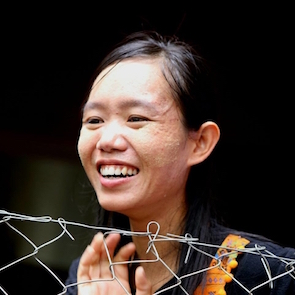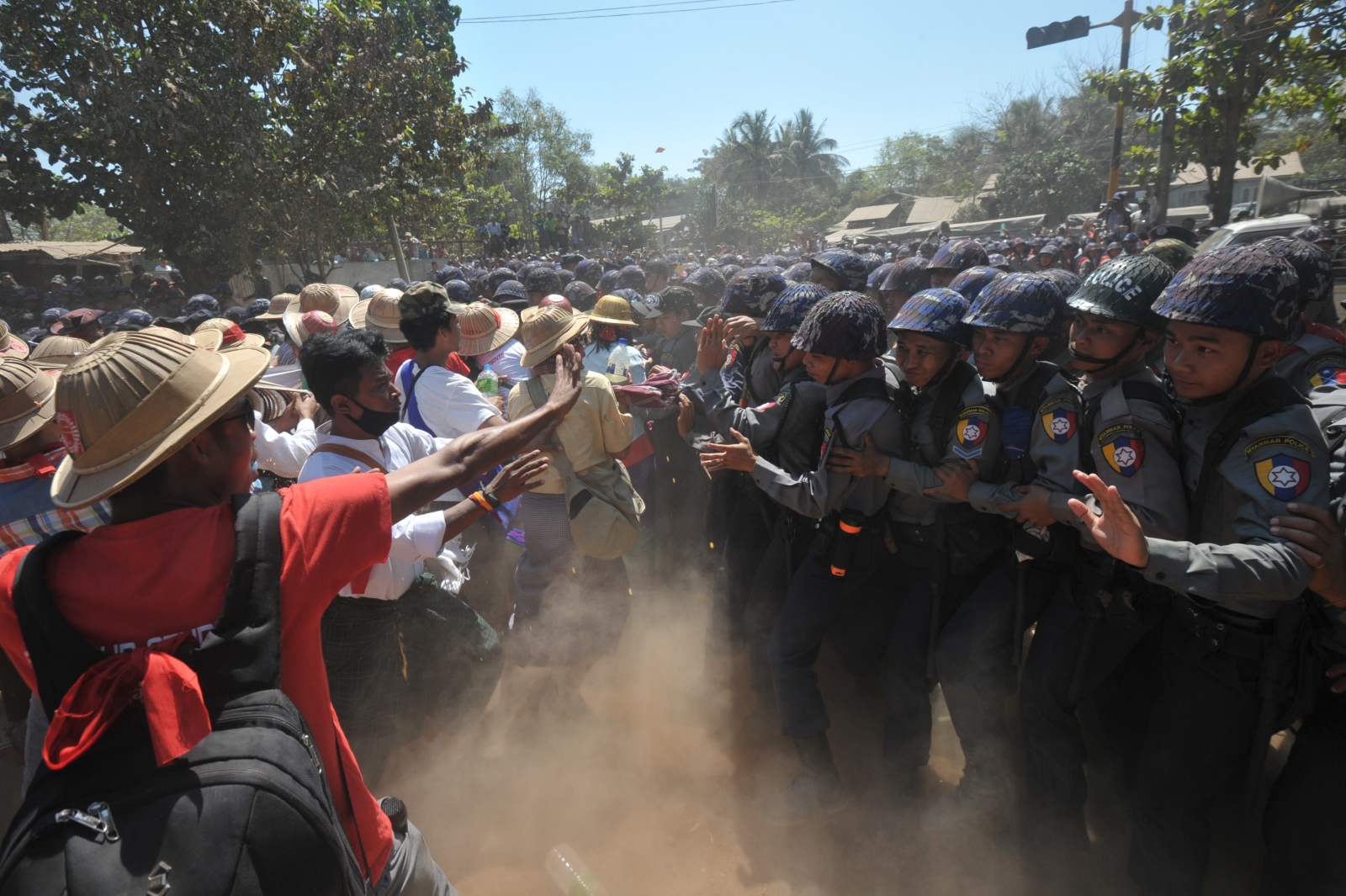
Phyoe Phyoe Aung
Phyoe Phyoe Aung is the General Secretary of the All Burma Federation of Student Unions (ABFSU). The ABFSU is a student organisation that since November 2014 has been heavily involved in protests against the National Education Bill, enacted by Parliament on 30 September 2014. Student organisations and independent experts have been highly critical of the law, which they claim restricts academic freedom. The ABFSU was one of a number of organisations that presented a list of ten demands to the Parliament for an amended statute, which include the adoption of ethnic languages in school curricula and the right to form student and teacher unions.
Phyoe Phyoe Aung comes from a politically active family. Her father is also an activist, who has been repeatedly arrested and was sentenced to 20 years in jail in 1989. In 2007, Phyoe Phyoe Aung participated in the Saffron Revolution and went into hiding. She was arrested in 2008 and sentenced to four years in prison. Following her release, in October 2011, Phyoe Phyoe Aung - who was 27-year-old at that time - became the general secretary of the All Burma Federation of Student Unions (ABFSU) and a member of the Democratic Education Movement Leading Committee. In 2014 she became one of the most prominent leaders of education reform campaign and the protests against the new National Education Bill. On 10 March 2015, the Myanmar Police Force violently repressed a student protest in the township of Letpadan in Bago Division. Phyoe Phyoe Aung was arrested, along with approximately 126 other students. In prison, many students reported being tortured. Phyoe Phyoe Aung was accused of breaching a number of national laws in Burma and risked being sentenced to more than nine years in prison. The human rights defender was released in April 2016, following a presidential pardon.
In 2016, Phyoe Phyoe Aung was selected as one of the six finalists for the Front Line Defenders Award for Human Rights Defenders at Risk.


